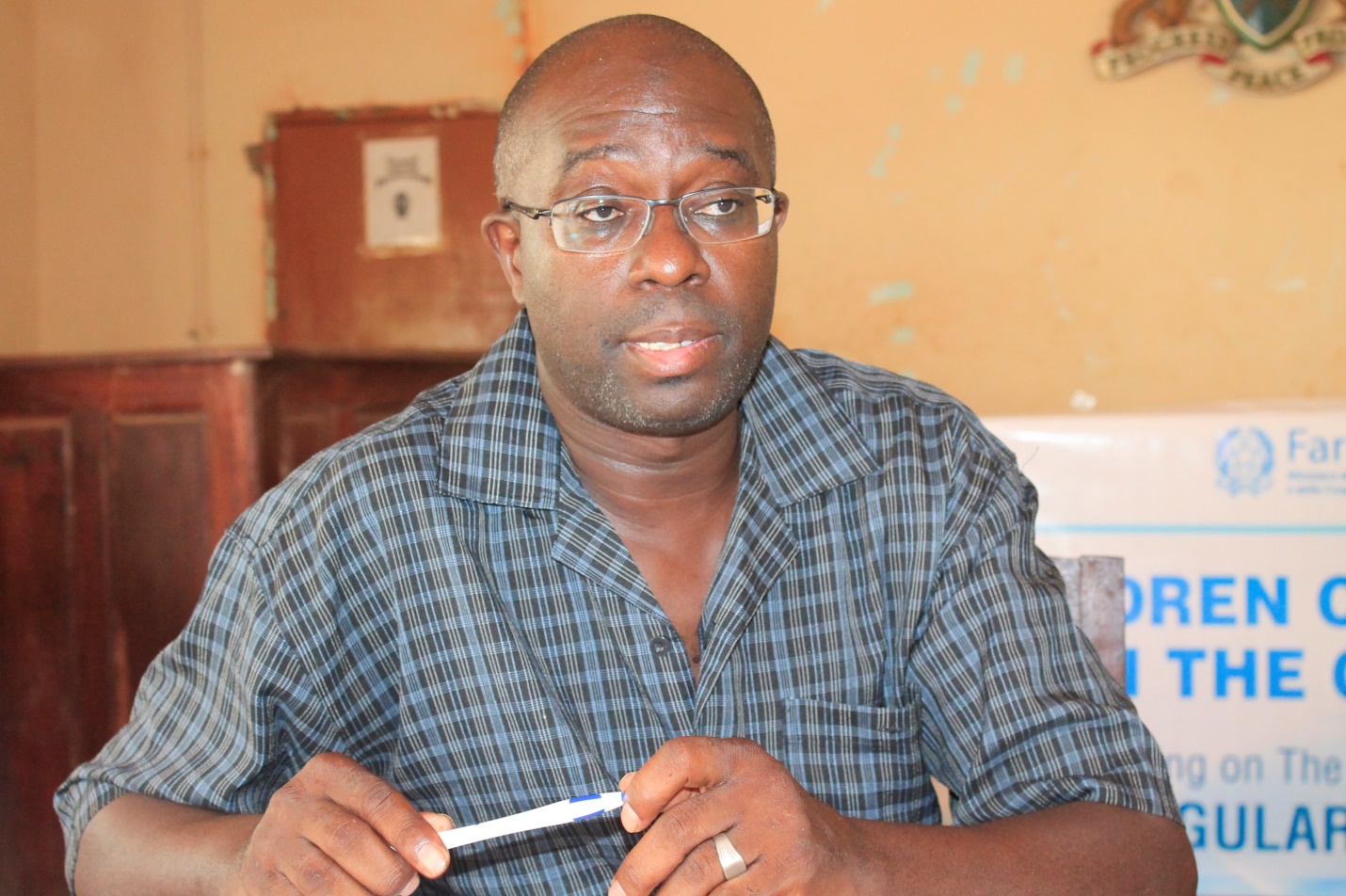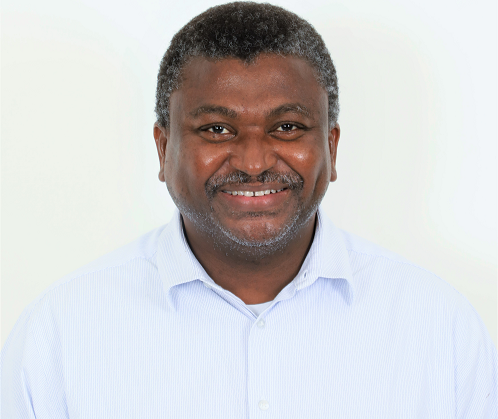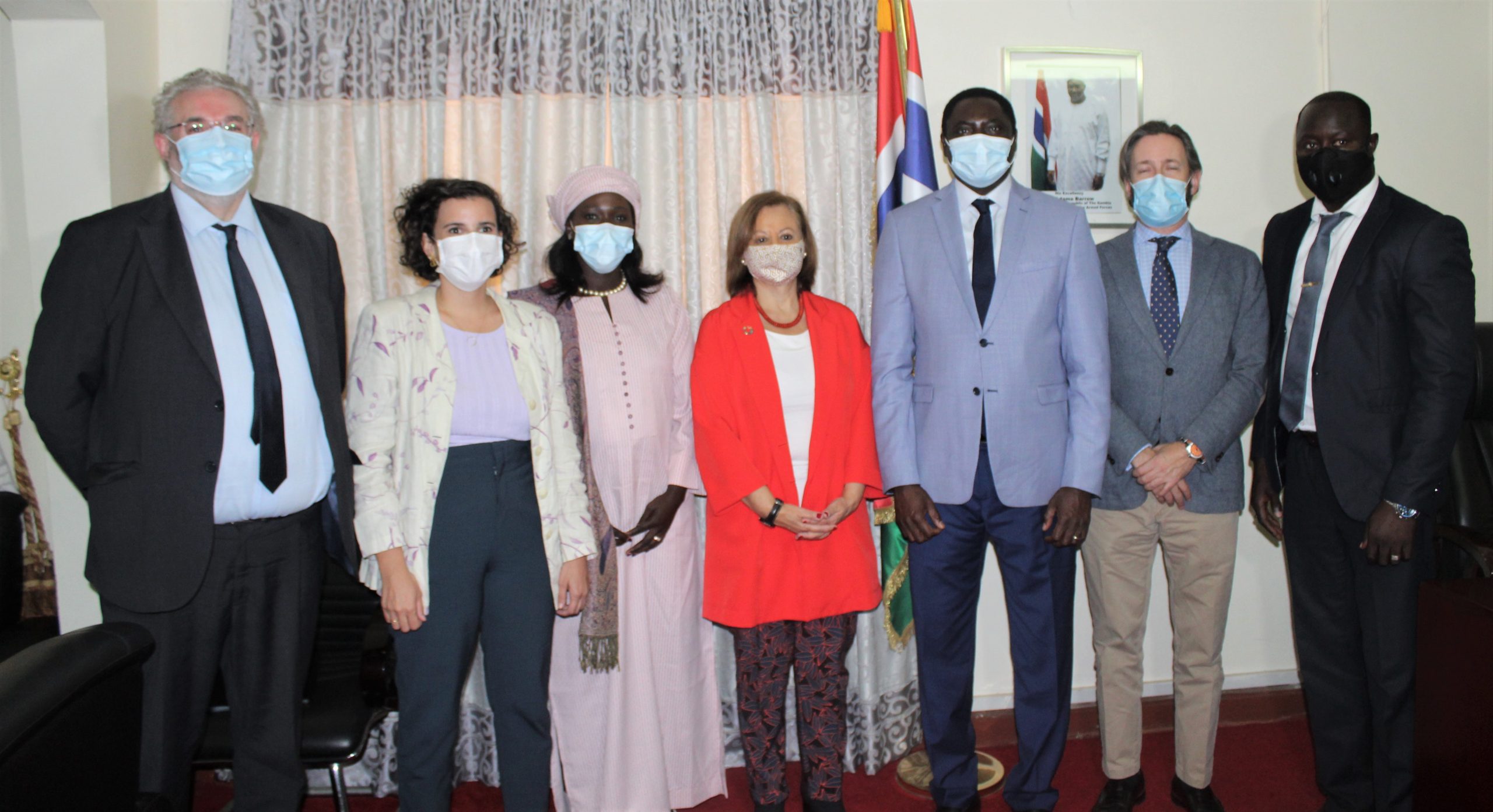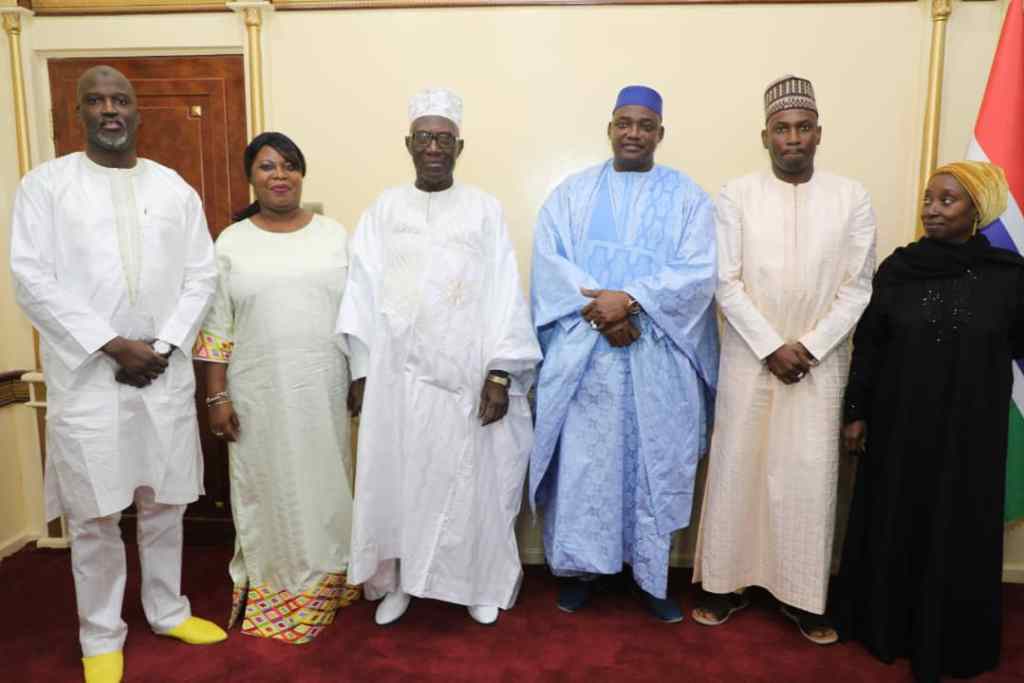By Sulayman Ceesay
Millions of children around the world including The Gambia are affected by migration. This includes girls and boys who migrate within and between countries (usually with their families but sometimes on their own), as well as children ‘left behind’ when their parents or caregivers migrate in search of economic opportunities.
Be it forced or voluntary, by adults or children, migration affects children’s care situations and can entail risks to their protection.
Sometimes Gambian children and teenagers steal money and sneak away without telling their family. The younger the migrant the less likely they are aware of all the risks and the complex political, security and economic situations of the countries they are entering.
The regional authorities united and expressed their readiness to curb irregular migration with a specific focus on children on the move in the country.
Mr. Samba Jallow, deputy governor, Upper River Region, children, as the future leaders of the country.
“It is a direction each and every one of us should ponder on and see how best we can pave way for children development. If we don’t take our stand as elders and stakeholders to make sure that we mold those children to be better at the end of the day we may end up having a society that we don’t want,” he said.
He said anytime people gathered to talk about children, they have to be bold enough to come out and take responsibilities upon them to make sure that at least they catcher for these children, talk about their development so that they can benefit themselves even they are not present.
“We do not want to spoil the child and we don’t want to beat the child, but we want to better the child. Children’s participation in decision making and national development is very important.”
Many migrant children, particularly those without documentation, end up without access to education, protection, or basic services, while discrimination and language barriers make it difficult for them to reintegrate into new communities.
Alh. Kanima Sanneh, chief Jimara district, said in the awareness creation on irregular migration or children on the move people need to be shown the reality in Europe, how they leave and what are theirs constrains.
He said: “The reality is that what people are portraying about Europe is not the reality on the ground. They only showed the ugly side of Africa and portray Europe as paradise, this is the reality, but Europe is not as we think, they equally have challenges like us,” he said.
“If you go to Europe you lost almost all your liberty to make the decision for yourself, these you are able to do in your own country, but you surrender all just to go to Europe, and it doesn’t worth it. Stay in your country with dignity and contribute to the development of your country.”
Ba Touray Jaiteh, National Disaster Management Agency (NDMA), spoke on the data on the level of migration in The Gambia, how many people left the country, return or still in Libya, and Italy.
He suggested that as a country to do a survey and establish an estimate to know how many most especially children are out of the country through the back way and how many are the country is expecting back within the coming three years.
“This will help the country to put up a better plan on how to reintegrate them, but without knowing the estimate it will be difficult and you may not achieve your target.”
In January 2017, 39% of Gambians who arrived in Italy were unaccompanied minors, 3 in 4 children and young adults face exploitation while trying to migrate from Sub-Saharan Africa to Europe through the Mediterranean Sea. It is important to talk to young people about the risks faced on the backway, according to the United Nations Migration Agency estimates.
Abdourahman Camara, ward councilor, Diabugu Ward, stressed the importance of education and skills in addressing irregular migration and children on the move.
He said: “We should not only stop taking them to school and we should also try by all means to help them have skills that will help them take care of themselves and their families.
“Europe is not as sweet as we think, but if you see our young people are leaving this country to Europe with all the difficulties, it is because they have very limited opportunities here that could change their lives.”
Moddy Ceesay, cluster monitor, Sandu District, said the government through Basic and Secondary Education has now come with an initiative called second chance education.
“This initiative is for youth and children who dropped out of school (grade 8, 9) to take them back to school and give a chance to repeat grade 9 exams and will be giving the opportunity to rebuild their lives in the area of education,” he said.
He said this will help the government to know and identify young people who want to go in for skills and their kind or continue their education.
“This is a two-year pilot project for 200 youth in all regions of the country and is for free. This will help to reduce unskilled or educated youth in the country and as well reduce irregular migration because when youth are educated and skilled they will not migrate,” he said.
Mbye Touray, Missira Ward, Sandu District, said it is the responsibility of everyone in the Gambia to discourage young people and children from moving or venturing into illegal means of traveling to Europe or any part of the world.
“We lost so many young people through this irregular migration or back way, we should work as a team to stop it and save the lives of our young people. Life in Europe is very hard; a lot of young people who left here for Europe is struggling there.”
He suggested that the government should introduce a system whereby any Gambian graduate from grade 12 or at the university level to go for 3-year skill training before been employed into the government.
“This is the system in some European countries. Someone without skills, how can that person survive, western education alone without skills is not enough to sustain us as a country. We can make it here in this country with the right skills and mindset, we can make our own millionaires,” he said.
Foday Sillah, teacher Diabugu, Sandu, said the development and future of any country are in the hands of its young people, and empowering and supporting them to stay should be the responsibility of all most especially parents and government.
“Government and partners should create recreational facilities and skills centers for young people in all regions or districts in the country to tempt them to stay, but these facilities are lacking especially in the rural Gambia,” he said.
Musa Kanteh, deputy governor, North Bank Region said there is a need to support such children to go to school or learn skills that will help them become responsible people in the future.
He assured that his office will work closely with other authorities in the region to curb irregular migration. “With the support of other institutions in migration and child protection we will do all we can to support children in the region,” he said.
Mr. Alasan Sanneh, social welfare officer, North Bank Region noted that children on the move are something that has been happening within the region and is high time for it to reduce or curb.
He noted that parents play a very important role in the movement of children, saying the best place for children is in school or skill training centers.
However, studies from around the world indicate that children left behind by migrating caretakers face education, health, and psychosocial problems, including deteriorating academic performance and lower school attendance, greater risk of drug abuse, early pregnancy, involvement in criminal activities and social dysfunction.
Left behind children may suffer from low self-esteem and feelings of abandonment and in the worst cases may be vulnerable to violence, abuse, and trafficking.
The journey is particularly risky for children. There have been many reports of children going missing. Unaccompanied minors may be forced to work to pay back smugglers for the costs of their journey, and are then at risk of sexual and labour exploitation.





